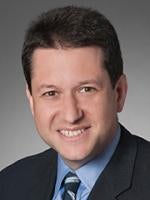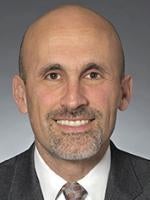The first quarter of 2015 witnessed a continuing effort by government lawyers to push the boundaries of criminal statutes in white collar cases—from health care fraud to corporate misconduct and beyond. Two recent cases illustrate the federal government's aggressiveness and the courts' mixed reaction to it.
Seventh Circuit Broadens Reach of Anti-Kickback Statute
The Anti-Kickback Statute (42 U.S.C. §§1320a-7b), long one of the government's favorite tools in health care prosecutions, now applies even more expansively after the Seventh Circuit's ruling in U.S. v. Patel, Seventh Circuit Court of Appeals, No. 14-2607, February 10, 2015). In Patel, the Seventh Circuit upheld the conviction of Kamal Patel, a Chicago-area physician, for violating the Anti-Kickback Statute by accepting cash payments in exchange for certifying patients for home health care services. The court did so even though Dr. Patel did not actually refer any patients to any particular provider.
Dr. Patel initially determined whether a patient required home health care services, and then the patient or her family considered home health care options with Dr. Patel's medical assistant. Dr. Patel did not instruct his assistant to recommend any particular provider, nor did he make any such recommendation himself. Instead, each patient received information about multiple home health providers, and each patient independently chose a provider. Grand Home Health Care was one of the home health providers made known to patients. When a new or existing patient selected Grand, Dr. Patel completed the appropriate certification paperwork (namely certification forms in the case of new patients, and recertification forms in the case of existing patients). Grand paid Dr. Patel a cash payment each time he certified or recertified a Grand patient.
None of these facts were disputed at trial. The evidence clearly established that Dr. Patel played no role in the selection of Grand. Moreover, the government conceded that every one of Dr. Patel's patients who went to Grand actually needed home health services. Dr. Patel was nevertheless convicted. On appeal, he argued that he could not be guilty under the Anti-Kickback Statute because the Statute prohibits the exchange of money for 'referrals'—and he never 'referred' or otherwise steered any patients to Grand.
The Court of Appeals upheld Dr. Patel's conviction. While the court acknowledged that Dr. Patel's interpretation of "referral" was consistent with common usage, it explained that "referral" could also "describe a doctor's authorization to receive medical care, even when the doctor is not choosing the provider of that care." Noting that the main purpose of the Anti-Kickback Statute was to prevent Medicare and Medicaid fraud, the court found that the "prospect of a kickback gave Dr. Patel an increased incentive to charge Medicare for [the] services—exactly the type of incentive that Congress sought to eliminate by passing the Anti-Kickback Statute."
In finding that Dr. Patel made unlawful "referrals" even though he did not choose or even recommend a particular provider, the Seventh Circuit stretched the meaning of "referral" further than ever before. Whether other courts will follow suit remains to be seen, but the Patel decision clearly has added another arrow to the government's quiver—and it will likely embolden the government to take similarly aggressive positions in health care enforcement actions going forward.
Supreme Court Narrows Reach of Obstruction Statute
The Sarbanes-Oxley Act of 2002 imposes a maximum sentence of 20 years for the destruction of "any record, document or tangible object" in order to obstruct an investigation. Long applied to financial fraud cases, this anti-shredding provision of the Act was put to unusual use by government lawyers in 2010: to prosecute a fisherman, John Yates, for tossing red groupers overboard after a federal officer caught him with the illegal catches and ordered him to keep them as evidence. Yates was convicted, and he appealed, arguing that the law was not intended to reach, and "tangible objects" should not be read to include, items as far removed from documents and records as fish.
The Supreme Court agreed with Yates by a 5-4 margin. The Court acknowledged that "[a] fish is no doubt an object that is tangible; fish can be seen, caught and handled, and a catch, as this case illustrates, is vulnerable to destruction. But it would cut [the anti-shredding provision] loose from its financial-fraud mooring to hold that it encompasses any and all objects, whatever their size or significance, destroyed with obstructive intent." Noting that Congress had focused on corporate deception in Sarbanes-Oxley, the Supreme Court found that the anti-shredding provision of Sarbanes-Oxley should be interpreted in the same context: "A tangible object captured by [Section] 1519, we hold, must be one used to record or preserve information."
The case is perhaps most notable for the comments made by dissenting Justice Elena Kagan. She believed that "tangible objects" did encompass fish, and would have upheld the conviction on that basis. Nevertheless, she wrote, the real issue in the case was that the law is "too broad and undifferentiated, with too-high maximum penalties, which give prosecutors too much leverage and sentencers too much discretion." She added, "I'd go further: In those ways, [the law] is unfortunately not an outlier, but an emblem of a deeper pathology in the federal criminal code."
The "pathology" in the criminal code cited by Justice Kagan, coupled with the government's aggressive use of criminal statutes, portends another challenging year for targets of government enforcement actions.





 />i
/>i

